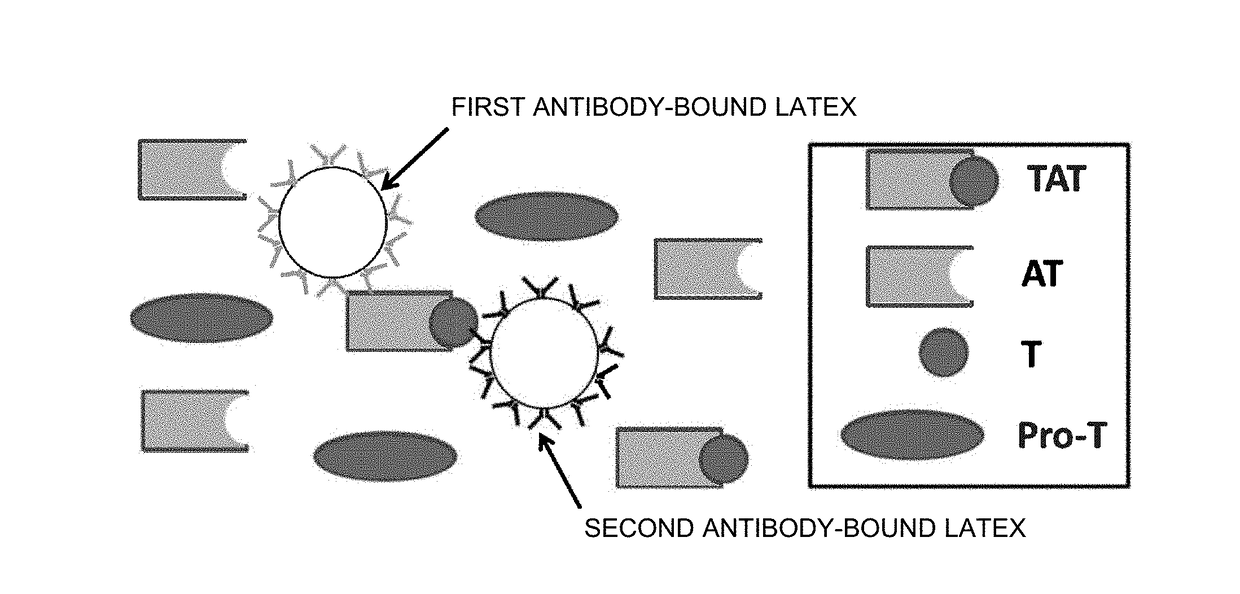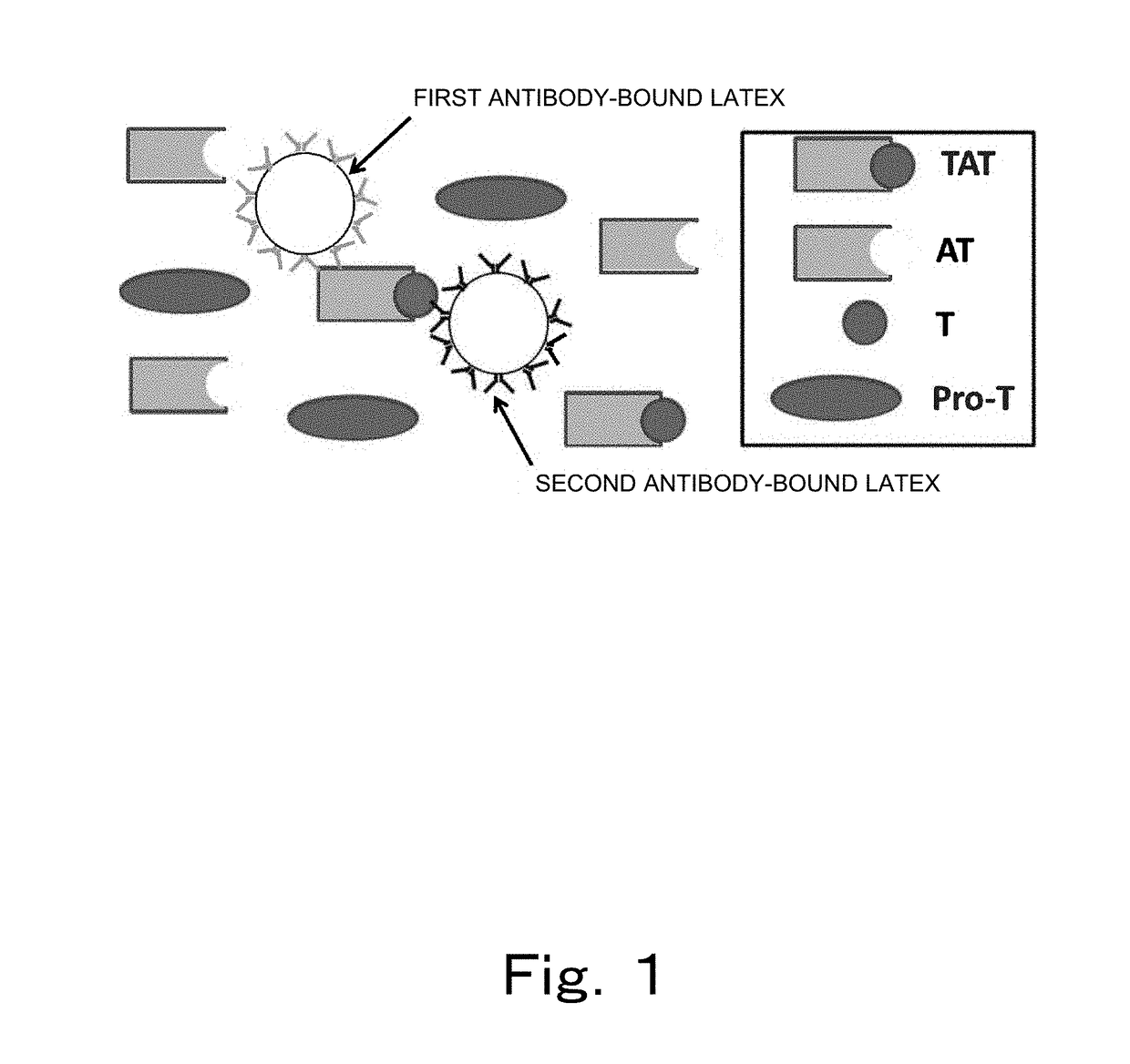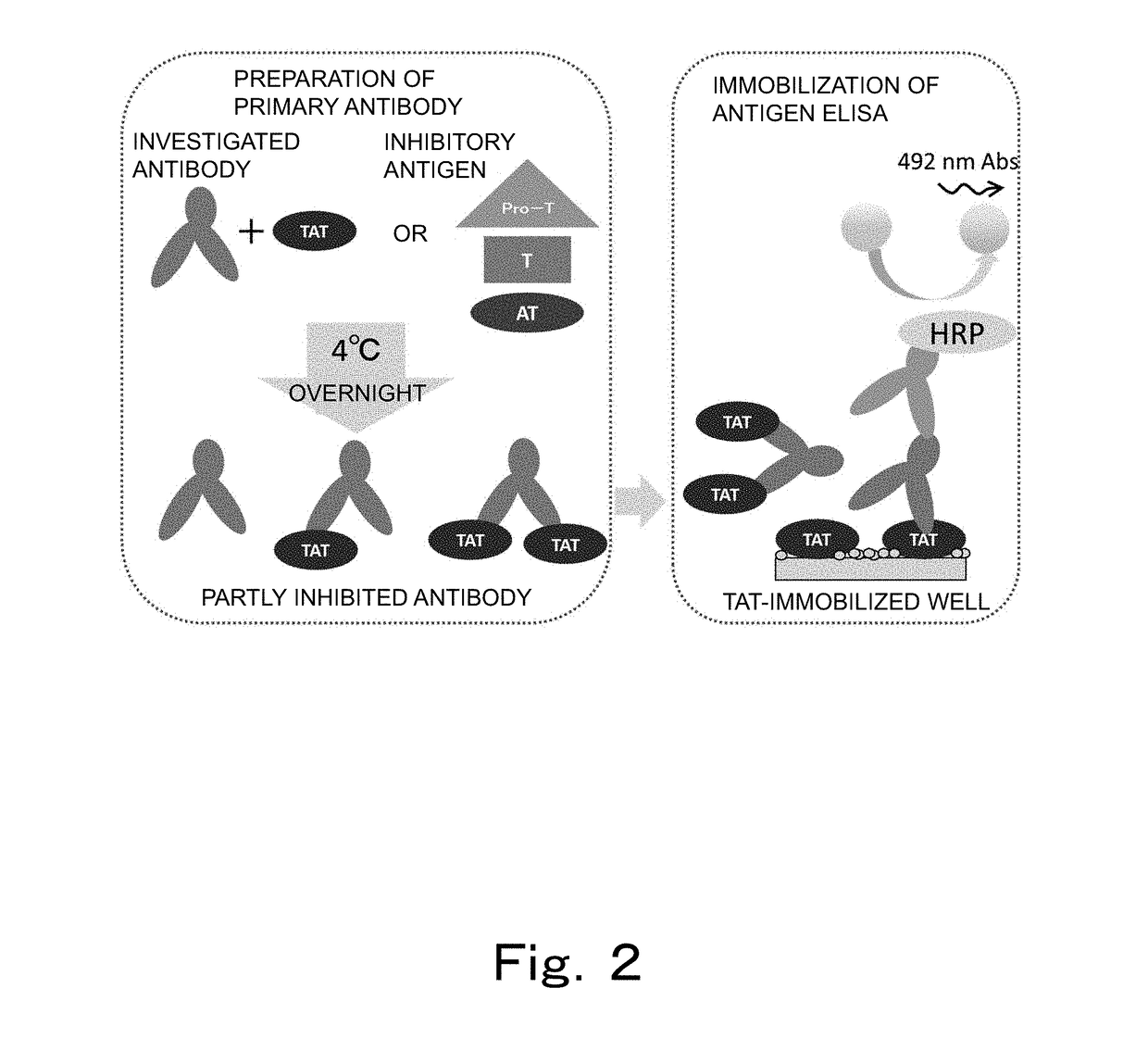Reagent and method for measuring thrombin-antithrombin complex
a technology of thrombin and complex, which is applied in the direction of biological material analysis, instruments, disease diagnosis, etc., can solve the problems of no report on any reagent that enables the precise concentration of tat complexes, difficult measurement of tat complexes, and laborious washing operations
- Summary
- Abstract
- Description
- Claims
- Application Information
AI Technical Summary
Benefits of technology
Problems solved by technology
Method used
Image
Examples
example 1
on of Synthetic TAT Complexes
[0090]A commercially available human thrombin formulation (manufactured by Japan Blood Products Organization) and a commercially available antithrombin formulation (manufactured by Japan Blood Products Organization) were separately diluted with PBS (produced by dissolving Dulbecco's PBS (−) powder “Nissui (manufactured by Nissui Pharmaceutical Co., Ltd.)” to a concentration of 9.6 g / L) and those dilutions were mixed at a molar ratio of 1:3 and then allowed to react at 37° C. for 30 minutes. After the 30 minutes, DFP (diisopropyl fluorophosphate, manufactured by Wako Pure Chemical Industries, Ltd.) was added to a concentration of 0.75 mM to stop the reaction.
[0091]Because unreacted thrombin and antithrombin were contained in the obtained reactant, purification was performed with a Hiload 26 / 60 Superdex 200 HR (manufactured by GE Healthcare) previously equilibrated with 50 mM Tris-HCl buffer (pH 7.4) containing 500 mM NaCl.
[0092]TAT fractions were recovere...
example 2
on of Anti-TAT Antibody
[0093]A cell fusion method was carried out according to the method described in Tamie Ando and Tatsuo Iwasaki, “Monoclonal Antibody / Hybridoma and ELISA” (Kodansha Ltd.).
[0094]The synthetic TAT complex prepared in Example 1 in an amount of 50 μg was mixed with Freund's complete adjuvant (manufactured by DIFCO) to provide an administered antigen.
[0095]The antigen was administered to BALB / c mice (female, four weeks old) three times at an interval of two weeks and 25 μg of the antigen, that is, half the amount of the original administered antigen was injected intravenously at the fourth administration.
[0096]One week later, lymphocytes were isolated from the spleen and mixed with P3x63-Ag.8 myeloma cells and then fused using polyethylene glycol (PEG 4000, manufactured by Merck).
[0097]Hybridoma cells were selected in HAT selection medium and then screened one week later for hybridoma clones producing an antibody of interest on the basis of the binding activity for t...
example 3
on of Anti-Thrombin Antibody
[0100]Anti-thrombin antibodies were obtained by a method similar to that in Example 2 using thrombin as an immunizing antigen. Antibodies specifically reacting with thrombin were selected and one of those clones was used as an anti-thrombin antibody (T-1).
PUM
| Property | Measurement | Unit |
|---|---|---|
| concentration | aaaaa | aaaaa |
| time | aaaaa | aaaaa |
| concentration | aaaaa | aaaaa |
Abstract
Description
Claims
Application Information
 Login to View More
Login to View More - R&D
- Intellectual Property
- Life Sciences
- Materials
- Tech Scout
- Unparalleled Data Quality
- Higher Quality Content
- 60% Fewer Hallucinations
Browse by: Latest US Patents, China's latest patents, Technical Efficacy Thesaurus, Application Domain, Technology Topic, Popular Technical Reports.
© 2025 PatSnap. All rights reserved.Legal|Privacy policy|Modern Slavery Act Transparency Statement|Sitemap|About US| Contact US: help@patsnap.com



